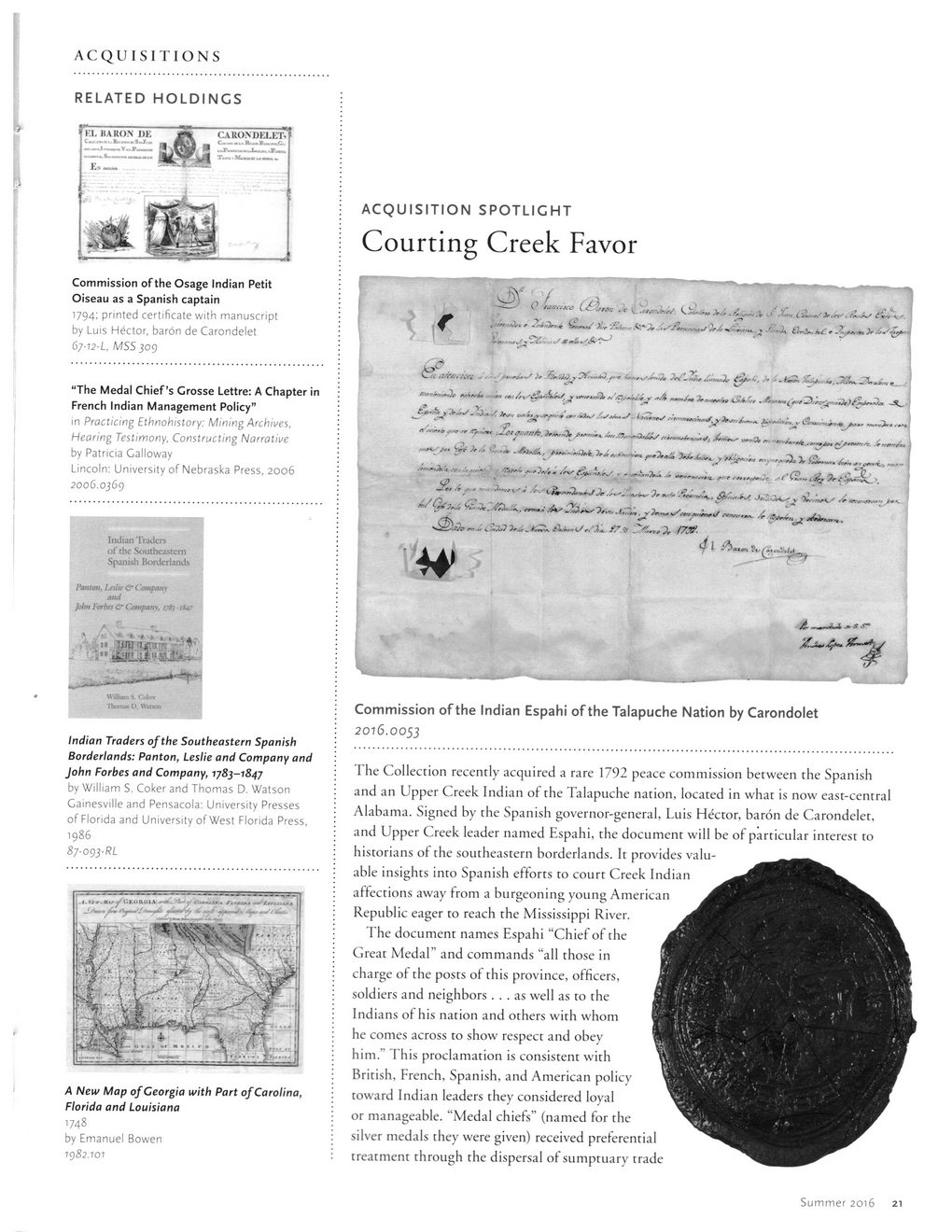This text was obtained via automated optical character recognition.
It has not been edited and may therefore contain several errors.
ACQUISITIONS RELATED HOLDINGS Commission of the Osage Indian Petit Oiseau as a Spanish captain 1794; printed certificate with manuscript by Luis Hector, baron de Carondelet 67-12-L, MSS 309 “The Medal Chief’s Crosse Lettre: A Chapter in French Indian Management Policy” in Practicing Ethnohistory: Mining Archives, Hearing Testimony, Constructing Narrative by Patricia Calloway Lincoln: University of Nebraska Press, 2006 200 6.0369 Indian Traders of the Southeastern Spanish Borderland;. Panton, Company and Job1 Forbes & Company. rSj ih' Ii ■. 5 ■»4m t ii!«jaJV:*.- ‘ wv: ,1, S. GArt TV ~ [) u.:--. Indian Traders of the Southeastern Spanish Borderlands: Panton, Leslie and Company and John Forbes and Company, 1783-1847 by William S. Coker and Thomas D. Watson Gainesville and Pensacola: University Presses of Florida and University of West Florida Press, 1986 87-093-RL A New Map of Georgia with Part of Carolina, Florida and Louisiana 1748 by Emanuel Bowen 1982.101 ACQUISITION SPOTLIGHT Courting Creek Favor oY (iHv .7/TV/. 7*¥£ - ' /•*.*****■/ jr **■ e ’ ____ w*--. -r-t.— ;,v...... 2, */ ** ^*------------------------------------------------------------^ . , 41 o-js-ju, Commission of the Indian Espahi of the Talapuche Nation by Carondolet 2016.0053 The Collection recently acquired a rare 1792 peace commission between the Spanish and an Upper Creek Indian of the Talapuche nation, located in what is now east-central Alabama. Signed by the Spanish governor-general, Luis Hector, baron de Carondelet, and Upper Creek leader named Espahi, the document will be of particular interest to historians of the southeastern borderlands. It provides valuable insights into Spanish efforts to court Creek Indian affections away from a burgeoning young American Republic eager to reach the Mississippi River. The document names Espahi “Chief of the Great Medal” and commands “all those in charge of the posts of this province, officers, soldiers and neighbors ... as well as to the Indians of his nation and others with whom he comes across to show respect and obey him.” This proclamation is consistent with British, French, Spanish, and American policy toward Indian leaders they considered loyal or manageable. “Medal chiefs” (named for the silver medals they were given) received preferential treatment through the dispersal of sumptuary trade Summer 2016 21

New Orleans Quarterly 2016 Summer (018)